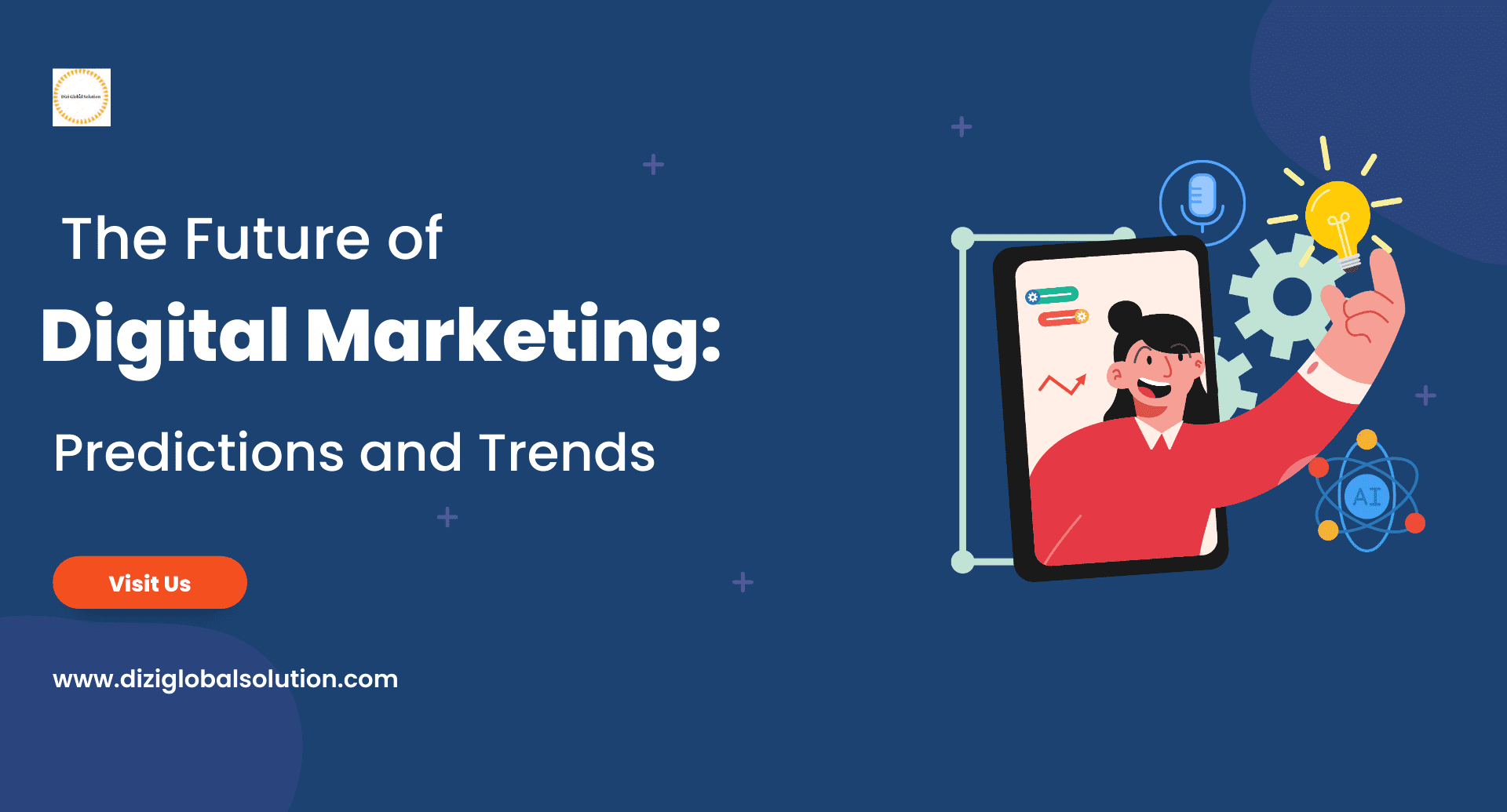The world of digital marketing is constantly evolving, and staying ahead of the curve is crucial for success. As we look towards the future, it’s important to examine the emerging trends and predictions that are shaping the industry. Digital marketing is becoming more personalized, immersive, and intelligent. Customers are expecting more tailored experiences, businesses are relying on more advanced technologies, and the competition is becoming fiercer.
In this blog, we will explore some of the key predictions and trends that will shape the future of digital marketing.
1. Increased Use of Artificial Intelligence (AI) and Machine Learning (ML)
Artificial intelligence and machine learning are becoming increasingly important in digital marketing. These technologies can be used to analyze data, personalize content, and automate processes. AI-powered chatbots are already being used for customer service, and in the future, we can expect to see more advanced AI applications, such as predictive analytics and recommendation engines.
2. Greater Focus on Customer Experience (CX)
Customer experience has always been important, but it’s becoming even more so in the digital age. Customers expect personalized experiences that are tailored to their individual needs and preferences. In the future, companies that are able to provide a seamless, intuitive, and personalized customer experience across all touchpoints will have a competitive advantage.
3. Rise of Voice Search and Smart Speakers
Voice search is already a popular way for consumers to search for information, and it’s only going to become more prevalent in the future. As a result, smart speakers are becoming more widespread, and businesses need to optimize their content for voice search and create experiences that are compatible with voice assistants like Siri, Alexa, and Google Assistant to stay relevant.
4. Increased Emphasis on Visual Content
Visual content is becoming more important in digital marketing. Consumers are increasingly drawn to images and videos, and businesses are responding by creating more visual content. In the future, we can expect to see more immersive visual experiences, such as augmented reality and virtual reality.
5. Growing Importance of Influencer Marketing
Influencer marketing is already a popular way for businesses to reach their target audience, and it’s only going to become more important in the future. As consumers become more skeptical of traditional advertising, they are turning to influencers for recommendations and advice. Therefore, in the future, businesses will need to partner with influencers who are a good fit for their brand and can authentically promote their products or services.
6. Continued Growth of Social Media
Social media is already a major force in digital marketing, and it’s only going to become more important in the future. With billions of users on social media platforms like Facebook, Instagram, and Twitter, businesses have a huge audience to reach. In the future, we can expect to see more emphasis on social media advertising, as well as the use of social media for customer service and community building.
7. Increased Focus on Data Privacy and Security
Data privacy and security are becoming increasingly important to consumers, and businesses need to take this seriously. In the future, companies that are able to demonstrate their commitment to data privacy and security will have a competitive advantage. This includes transparently collecting and using data and taking steps to protect customer data from cyber threats.
8. Continued Growth of E-commerce
E-commerce is already a huge industry, and it’s only going to continue to grow in the future. As more consumers shift to online shopping, businesses need to optimize e-commerce experiences that seamlessly work on mobile devices and offer fast and reliable delivery options.
Conclusion
The future of digital marketing is bright and exciting, but businesses must keep up with the emerging trends and technologies. These include artificial intelligence, customer experience, visual content, voice search, influencer marketing, social media, data privacy, and e-commerce.
Therefore, it’s crucial for businesses to integrate these areas into their digital marketing strategy and develop a cohesive approach to maximize their impact. In doing so, businesses can create a seamless customer experience that delivers long-term benefits and sustainable growth.
Furthermore, businesses that prioritize these areas and keep up with the latest technologies and trends are more likely to remain competitive and succeed in digital marketing. By embracing new tools and strategies, businesses can create meaningful connections with customers, increase brand awareness, and ultimately drive growth. Thus, staying ahead of the curve is essential for businesses looking to thrive in the digital age.




